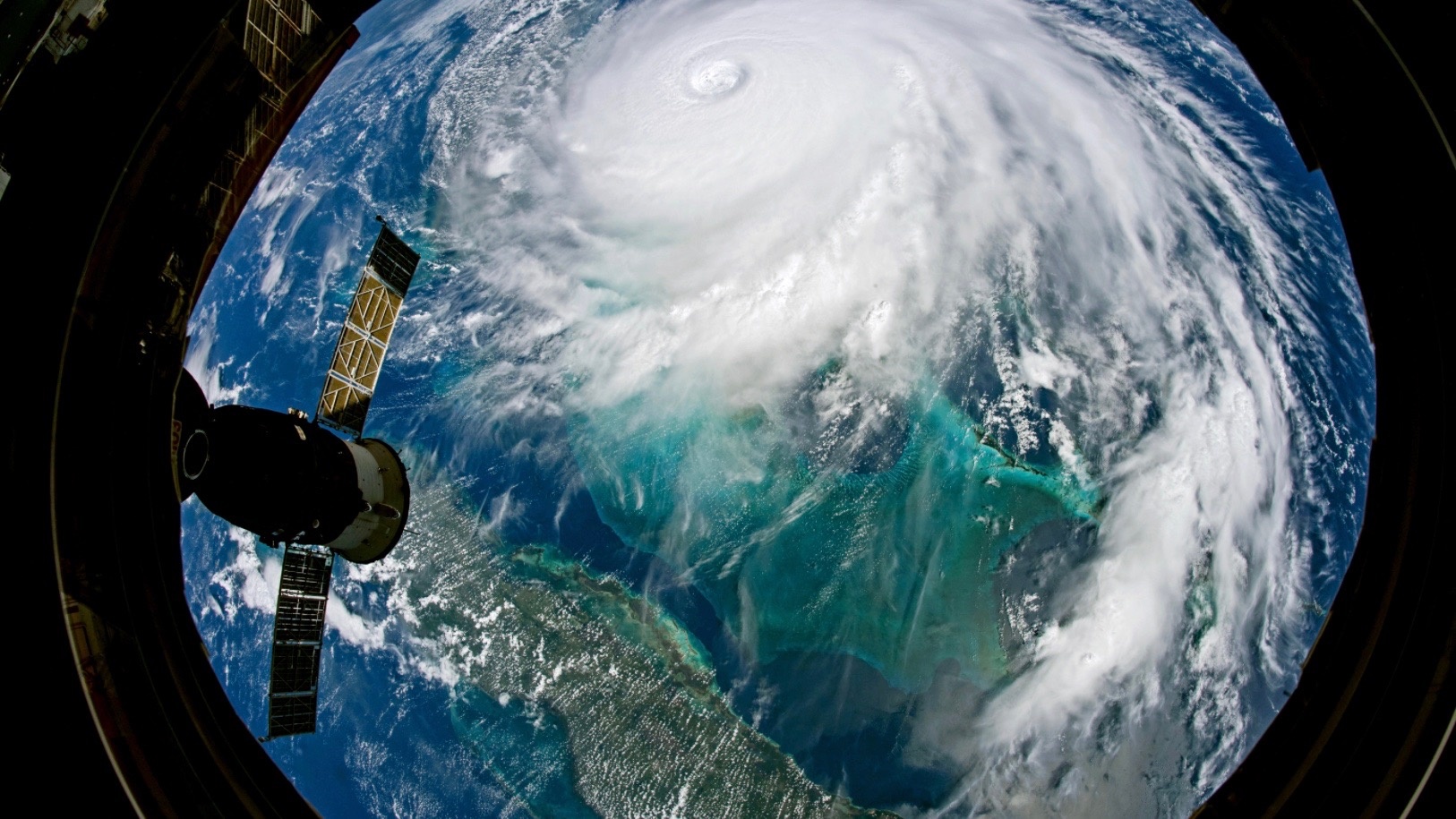

Hurricane Dorian was one of the 2019 Atlantic hurricane season's most devastating storms. NASA
2019 marked the fourth year in a row that the Atlantic hurricane season saw above-average activity, and it doesn’t look like 2020 will provide any relief.
The 2020 season is expected to generate 14 to 18 tropical storms, of which seven to nine will become hurricanes and two to four will develop into major hurricanes, AccuWeather predicted Thursday.
“It’s going to be an above-normal season,” leading AccuWeather hurricane expert Dan Kottlowski said. “On a normal year, we have around 12 storms, six hurricanes and roughly three major hurricanes.”
2019 tied with 1969 as the fourth most active hurricane season on record. Storms last year included Hurricane Dorian, which devastated the Bahamas, and Tropical Storm Imelda, which caused widespread flooding in Houston. Overall, last year’s season saw 18 storms that caused more than billion in damage.
Hurricane season usually lasts from June 1 to Nov. 30, and Kottlowski advised anyone living in a potentially impacted area to be prepared:
“Forecasts will give you an idea of how active it might be, but all it takes is one storm to make landfall in your area to cause serious and life-threatening problems,” Kottlowski said.
“Go back to last year with Dorian and Imelda,” he added. “Those were two very, very high-impact storms,” he said. “This year, more than likely, we’ll get hit with one or two big storms and we don’t know specifically where that is, so if you live near a coast or on an island, have a hurricane plan in place.”
There is little evidence that the climate crisis is impacting hurricane frequency, according to Yale Climate Connections. Since 1985, a relatively stable average of around 80 tropical cyclones have formed each year.
What the climate crisis does do is make hurricanes more dangerous by raising ocean temperatures, which fuel storms that are wetter, more intense and more likely to intensify rapidly.
This was the case with Dorian, which intensified from 150 miles per hour to 180 miles per hour over a nine hour period over water one degree Celsius warmer than normal, according to ScienceAlert!
2019 was the fourth year in a row in which a Category 5 hurricane developed in the Atlantic, and Category 4 and 5 hurricanes are expected to be almost twice as common in the North Atlantic in the next century as the climate warms, even as the overall number of storms decreases. This is a problem because, according to Yale, major hurricanes are the world’s most expensive extreme weather event.
While overall frequency and climate are not linked, one of the factors driving AccuWeather’s predictions is that water temperatures in the Caribbean are already up to 80 degrees Fahrenheit, according to National Oceanic and Atmospheric Administration data reported by AccuWeather.
“Warm water is actually what drives a lot of seasons,” Kottlowski said. “So those will be areas to keep an eye on for early-season development.”
- Hurricanes and the Climate Crisis
- Tropical Storm Cristobal Brings Flooding and Tornadoes to Gulf Coast - EcoWatch
- Gonzalo Could be First Atlantic Hurricane of the 2020 Season
- Hanna Pummels Texas as First Atlantic Hurricane of 2020 and Earliest ‘H’ Storm on Record - EcoWatch
- Tropical Storm Warnings Issued for Puerto Rico, Eastern Caribbean as Earliest ‘I’ Storm Threatens to Form - EcoWatch
- Isaias Projected to Become Hurricane as it Approaches Carolinas - EcoWatch
- Isaias Lashes East Coast With Deadly Winds and Rain - EcoWatch
- 2020 Hurricane Season Expected to Be Most Active Since 1980s - EcoWatch
- 2 Hurricanes Could Strike U.S. on the Same Day for the First Time in History - EcoWatch
- Tropical Storm Beta Makes Landfall in Texas, Drenching Storm-Weary Gulf Coast - EcoWatch
- Hurricane Delta Breaks Record for Earliest 25th Named Storm - EcoWatch
- Hurricane Delta's Rapid Intensification Is Fueled by Climate Change - EcoWatch

 233k
233k  41k
41k  Subscribe
Subscribe 